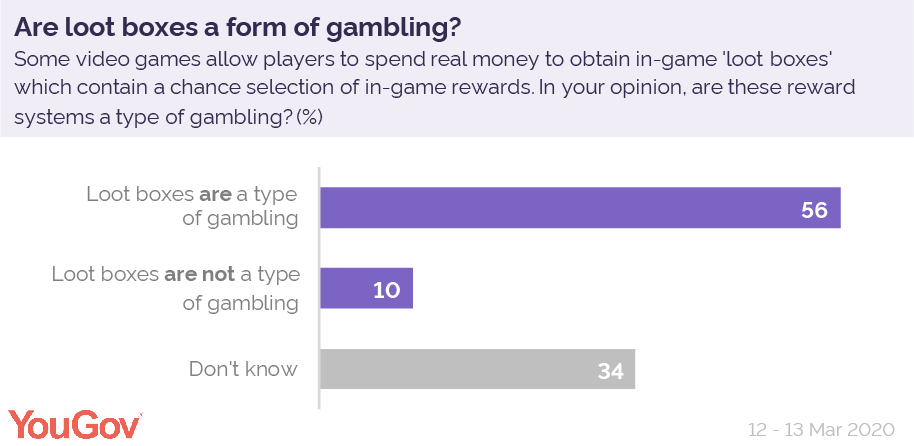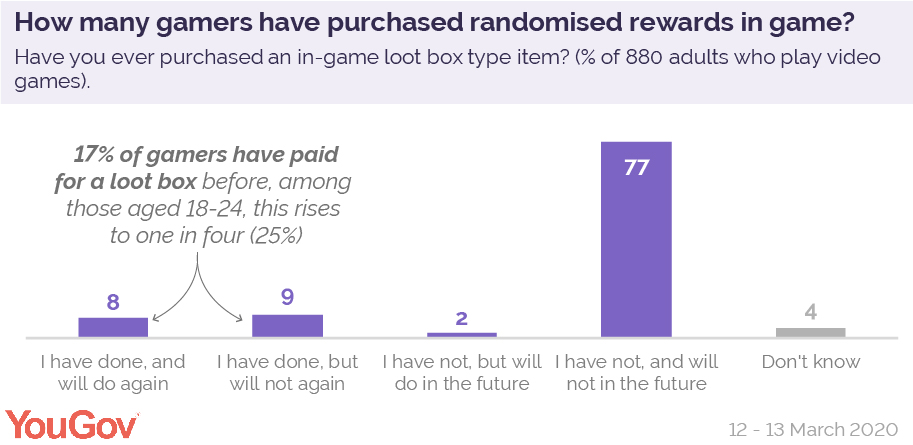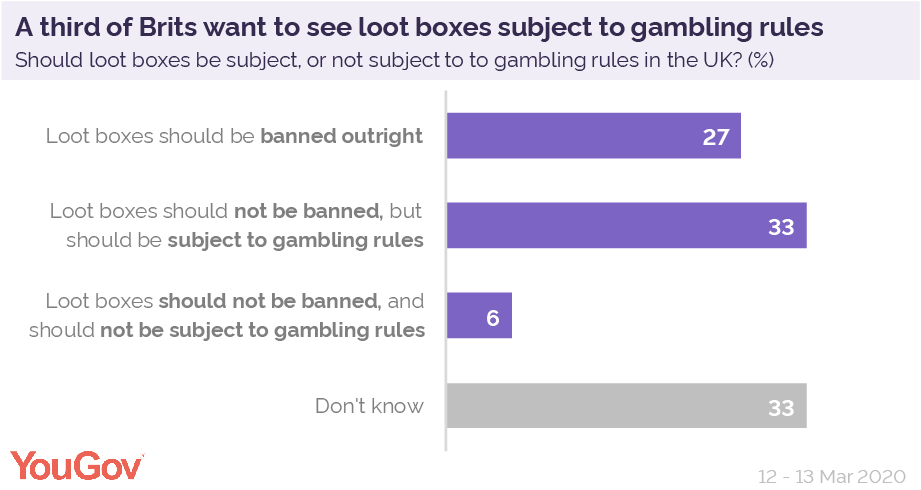Systems that allow players to spend real money for randomised in-game rewards should be subject to gambling rules, say Brits
Many Britons stuck inside on lockdown are turning to video games to keep themselves and their children entertained. Many of these games allow players to use real money to buy virtual items, or even to play games of chance for virtual rewards. New YouGov research shows that most Brits want to see changes in the law to protect gamers from what is, essentially, a form of gambling.
The “Loot Box” system, which is used in many popular games such as Fifa and Fortnite as well as free-to-play mobile games, awards the player a random in-game reward. These loot boxes are often brought with in-game currencies paid for with real money – and half (56%) of Brits think that makes them a type of gambling.
Overall one-in-six (17%) British gamers say they’ve spent money on loot box style systems in video games, rising to a quarter (25%) of gamers aged from 18 to 24.
But they do not seem to be a common repeat purchase, however, as only half of gamers who have used loot box systems (8% of gamers overall) say they would do so again.
Given the popularity of video games among children [link to matt smith story], games featuring loot box systems were also accused of exploiting children by MPs last year. Other countries such as Belgium have gone as far to ban loot boxes outright – and six-in-ten (60%) Brits want to see the regulations imposed on similar systems here in the UK.
A quarter of Brits (27%) want to see the randomised loot system banned from video games outright, and another 33% want to see the systems subject to gambling rules. Only 6% of Brits think the systems should continue unregulated.
Image by Olya Adamovich from Pixabay


 Click to enlarge
Click to enlarge Click to enlarge
Click to enlarge Click to enlarge
Click to enlarge





